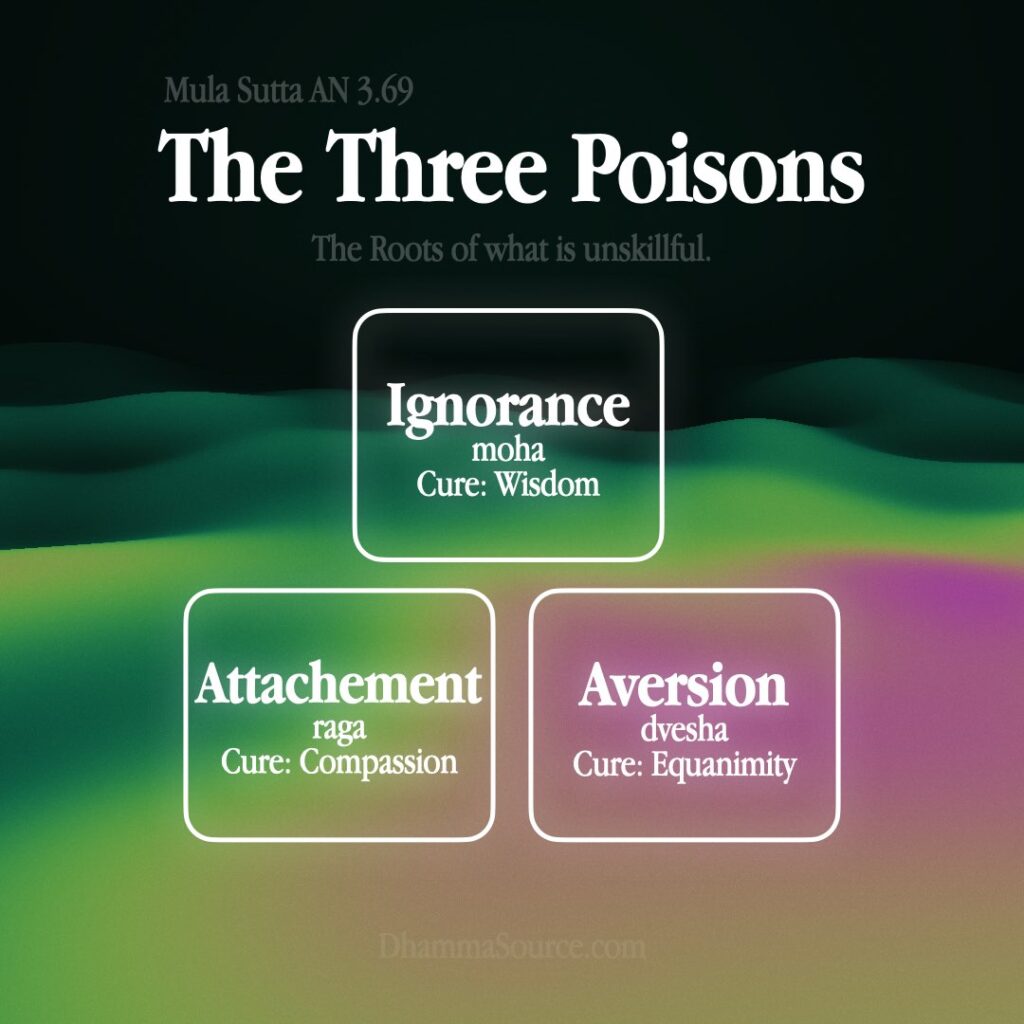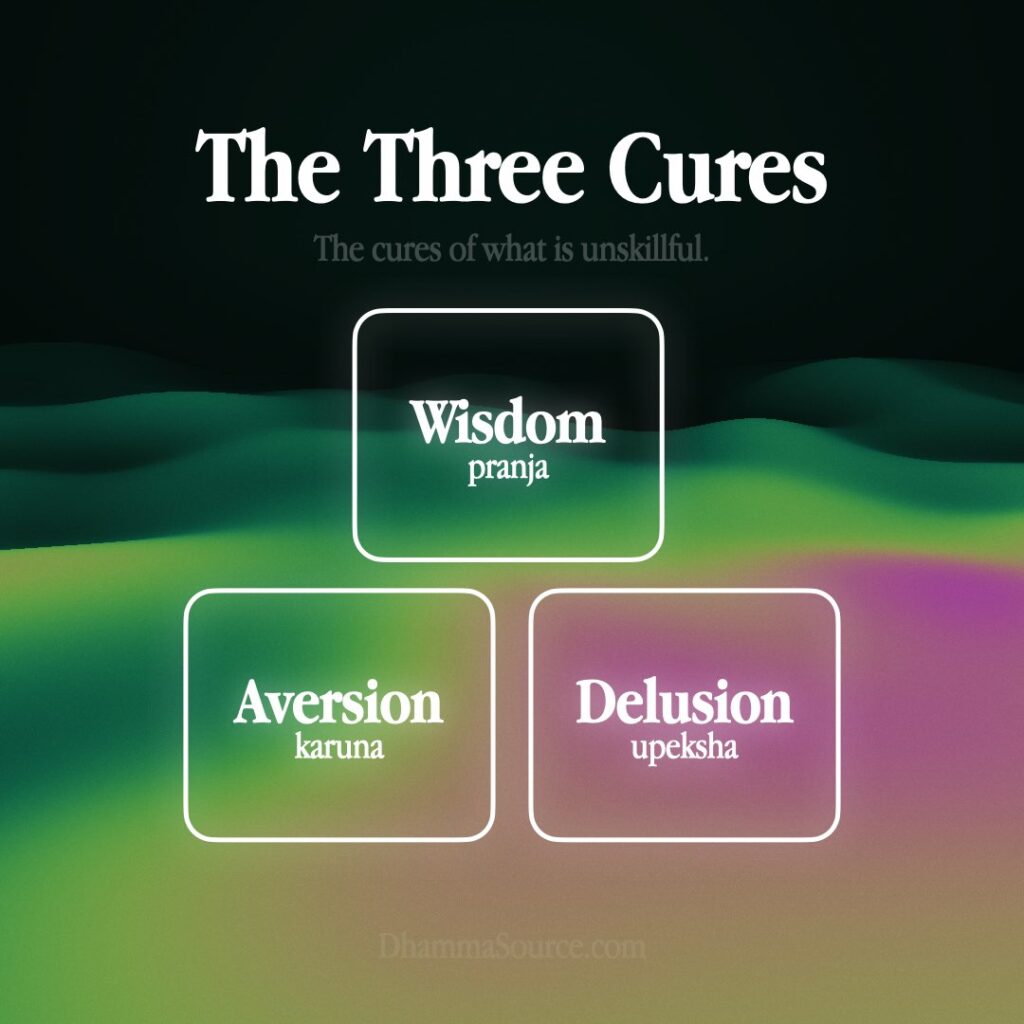The Three Poisons – Buddhism

Buddhism teaches that there are three fundamental negative emotions or mental states that cause suffering and hinder spiritual growth. These are known as the three poisons, and they are:
- Ignorance (moha)
- Attachment (raga)
- Aversion or hatred (dvesha)
Ignorance refers to a lack of understanding of the true nature of reality, and a tendency to misunderstand the causes and conditions that give rise to our experiences. Attachment is a clinging or grasping to things or experiences, which can lead to a sense of unsatisfactoriness or suffering when we are unable to attain or hold onto those things. Aversion or hatred is a negative emotion directed toward things or experiences that we perceive as undesirable or threatening.
These three poisons are seen as the root causes of all other negative emotions and mental states, and are believed to be the primary obstacles to spiritual growth and enlightenment.

The Three Antidotes in Buddhism
While the three poisons can be harmful and obstructive, Buddhism also teaches that there are three antidotes or practices that can help to overcome them. These antidotes are:
- Wisdom (prajna)
- Compassion (karuna)
- Equanimity (upeksha)
Wisdom refers to a deep understanding of the true nature of reality, which can help to dispel ignorance and delusion. Compassion is an attitude of empathy and concern for the suffering of all beings, which can counteract attachment and self-centeredness. Equanimity is a balanced and accepting attitude toward all experiences, which can counteract aversion and hatred.
These three antidotes are seen as essential practices for cultivating positive mental states and overcoming the negative patterns of thought and behavior associated with the three poisons. By developing wisdom, compassion, and equanimity, Buddhists can transform their minds and cultivate greater peace, happiness, and spiritual growth.

Applying the Three Antidotes in Daily Life
While the three antidotes may seem abstract or theoretical, they can be applied in practical ways in daily life. For example, one can cultivate wisdom by studying Buddhist teachings and contemplating the nature of reality. Compassion can be practiced by performing acts of kindness and service for others, or by developing a daily meditation practice that includes loving-kindness meditation. Equanimity can be practiced by learning to accept and respond to life’s ups and downs with a calm and balanced mind.
By applying the three antidotes in daily life, Buddhists can gradually reduce the influence of the three poisons and develop greater inner peace, joy, and spiritual growth. Whether through formal meditation practice or everyday acts of kindness and mindfulness, the three antidotes can be a powerful tool for transforming one’s mind and achieving greater happiness and fulfillment in life.












